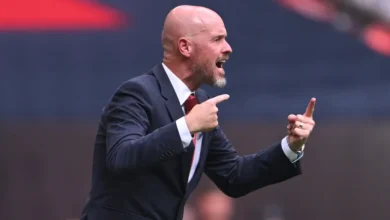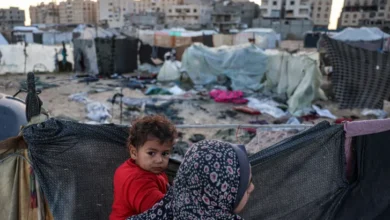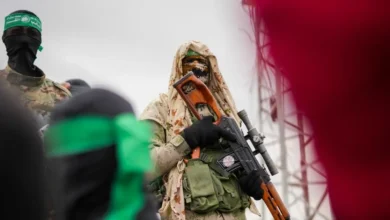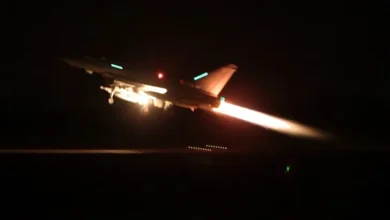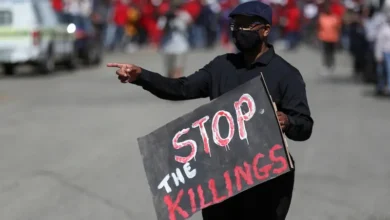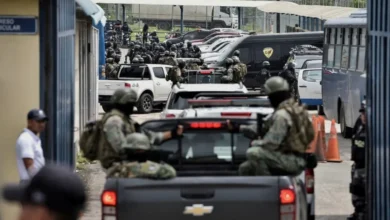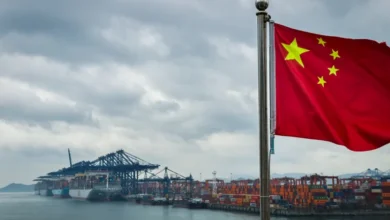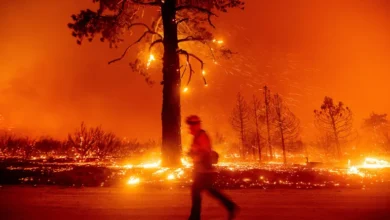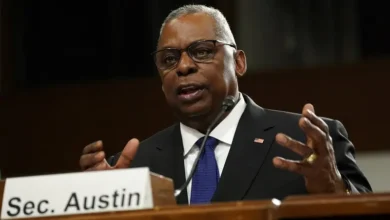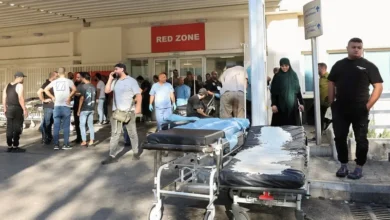Marriage of convenience: Isolated Russia and Iran bond over shared animosity to West
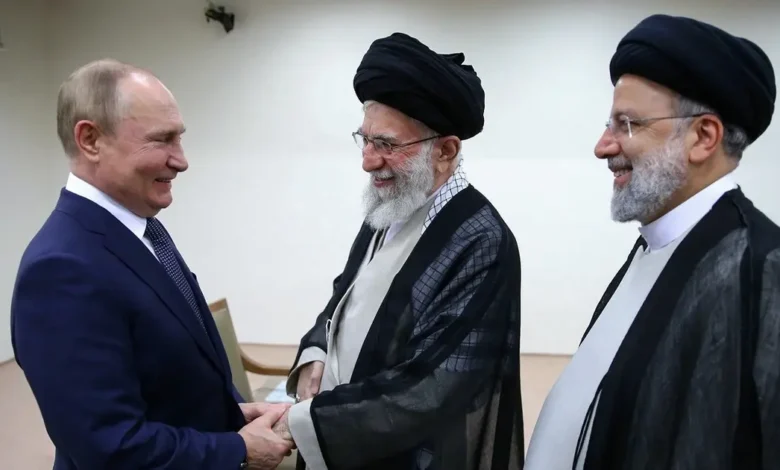
Recently, Iran and Russia have been gradually strengthening their ties, forging a deeper strategic partnership that has implications not only for their bilateral relations but also for regional dynamics and international geopolitics. Several factors have contributed to the development of closer ties between the two nations.
One significant factor is the shared interest in countering common adversaries and challenges. Both Iran and Russia have faced international sanctions and isolation, largely due to their actions and policies that are at odds with Western interests. Consequently, they have found it beneficial to cooperate and support each other in the face of economic and political pressure from the West. Iran’s nuclear program and Russia’s actions in Ukraine, for example, have drawn criticism and sanctions from the international community, leading the two countries to seek solidarity in their defiance of Western pressures.
Moreover, both Iran and Russia view the Middle East as a crucial region for their geopolitical interests. Iran aims to expand its influence and establish itself as a dominant power in the region, particularly through its support for various proxy groups like Hezbollah in Lebanon and Shia militias in Iraq and Syria. Russia, on the other hand, seeks to bolster its presence and influence in the region, capitalizing on the power vacuums created by the Syrian civil war and other conflicts. By coordinating their efforts and supporting aligned factions in the Middle East, Iran and Russia have advanced their respective regional ambitions.
Furthermore, the economic dimension of their relationship is gaining importance. Sanctions imposed on Russia have led to the diversification of its economic partnerships, with Iran emerging as an attractive market and partner. Likewise, Iran, with its vast energy resources and potential, offers strategic opportunities for Russia’s energy interests and economic expansion.
While Iran and Russia’s growing cooperation has provided them with certain advantages, it has also drawn concern from some regional and international actors. The deepening partnership between the two nations, especially in the realms of defense and security, has implications for the balance of power in the Middle East and could potentially impact regional stability. It also poses challenges to the interests of other actors, including the United States and its allies in the region.
Overall, the evolving relationship between Iran and Russia reflects a convergence of interests and strategic priorities, presenting opportunities for both nations to advance their geopolitical objectives in an increasingly complex and competitive global landscape.
Closer than ever
In present day, Iran and Russia are closer than ever before, having formed a partnership of convenience against the West, with the war in Ukraine making Moscow turn to Tehran to acquire arms.
White House National Security Council spokesman John Kirby said in May: “We continue to see indications that Iran and Russia are expanding their unprecedented defense partnerships. This is a full scale defense partnership.” Kirby said that Iran is now Russia’s top military backer providing it with hundreds of reconnaissance and suicide drones that Moscow uses to attack targets in Ukraine.
Beyond drones, Kirby added: “Interactions between Iran and Russia in matters regarding the selling of advanced weapons, especially more advanced UAVs, are now continuing.”
The defense partnership between Russia and Iran is mutually beneficial as Iran announced in April that it had finalized a deal to buy Su-35 fighter jets from Russia. Kirby stressed that Iran is seeking to purchase additional military equipment from Russia, including attack helicopters, radars and Yak-130 combat trainer aircraft. In total, Iran is seeking billions of dollars’ worth of military equipment from Russia.
Additionally, Iran has reportedly dispatched trainers to occupied Ukraine in a bid to assist Russian forces in resolving challenges related to their recently acquired fleet of drones, procured from Iran. This move indicates a deepening relationship between Iran and Russia since Russia’s military intervention in Ukraine.
The Iranian trainers are reportedly stationed at a Russian military facility located in Crimea, where a significant portion of the drones has been deployed following their delivery from Iran. These trainers belong to the Islamic Revolutionary Guards Corps (IRGC), a branch of the Iranian military that has been designated as a terrorist organization by the US.
“This is a full-scale defense partnership, that is harmful to Ukraine, to the region in the Middle East, and to the international community,” Kirby emphasized.
The Iranian military support to Russia has secured a fresh round of Western sanctions against Tehran by the US and EU targeting individuals and entities responsible for, supporting or involved in Iran’s UAV’s program.
How the experts view the relationship?
A parallel between Russian and Iranian positions on the global stage can be clearly drawn and an argument made that their similar circumstances made them mutually-beneficial bedfellows. Most experts told Al Arabiya English they saw in Iran and Russia isolated countries, each standing to gain from their bilateral relationship. However, some argued that Russia was taking advantage of Iran.
Jon B. Alterman, director of the Middle East program at CSIS, said: “Both countries seem to have concluded that Western hostility is a constant, and if either were to act in a more conciliatory manner, it would only weaken them. Russia has relied on Iran for drones, and there are reports that Iran has helped Russia think through sanctions-busting strategies, which Iran itself has been developing over decades.”
Daniel Byman, professor in the School of Foreign Service at Georgetown University said: “The relationship with Russia is valuable to Tehran for several reasons. First, Iran is isolated on the world stage, and having a major power — even one like Russia that is in a difficult situation — as a potential partner is beneficial. Russia can use its political influence, such as at the UN Security Council, to help Iran and there are possibly beneficial military relations.”
He added that Iran can possibly distance itself from or grow closer to Russia as a foreign policy negotiation chip. “Iran can also adjust it support for Russia based on its progress with the West on various negotiations — the threat of a close partnership with Russia can be used as an inducement to the US and Europe, and moving away from Moscow as a concession for things Iran cares more about.”
Anna Borshchevskaya, a senior fellow at the Washington Institute, focusing on Russia’s policy toward the Middle East stressed that Russia and Iran needed each other, essentially because they had little other options in the face of the isolation from the West. She argues: “Iran is now in a better position to ask for more from Russia than it could before the invasion of Ukraine,” thanks to Iran’s role in providing Russia with combat drones. She said Iran is now able to get more advanced weaponry from Russia and cooperation in other spheres.
Adjunct senior fellow for Middle East studies at the Council of Foreign Relations, Henri Barkey said: “They are both outliers, even outcasts. There may be countries supporting them but relatively speaking they have little clout in world politics. Yes, Iran and Russia’s similar circumstances go along way to create a bond between them. They have a common enemy, the West, and that helps strengthen their cooperation especially because both are undemocratic, there is no room for dissent at home.”
On the other hand, Alex Vatanka, the founding Director of the Iran Program at the Middle East Institute argued that Russia was taking advantage of Iran’s isolation and that Tehran was “beholden” to Moscow: “Russia is taking advantage of the Iranian situation… At the moment, there’s nothing Russia needs to do to please the Iranians because the Iranians don’t have anywhere to go.”
He added: “The Iranians have… this mistaken belief that they have in [Russian President] Vladimir Putin a strategic partner that will be with them through thick and thin, which I don’t think is going to happen.”
